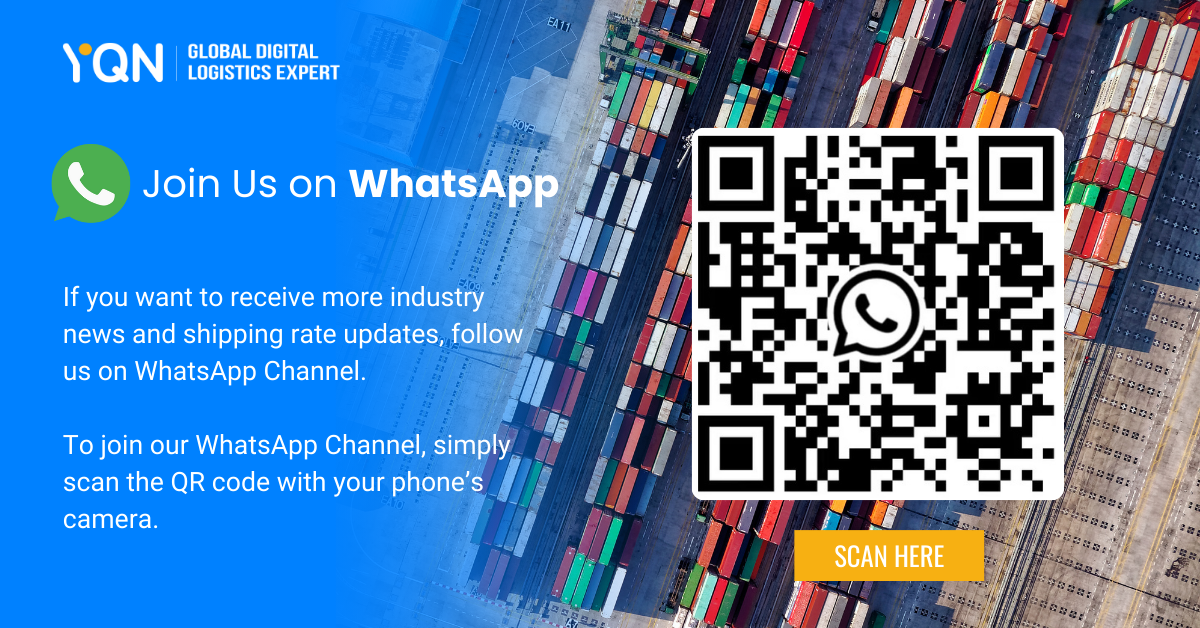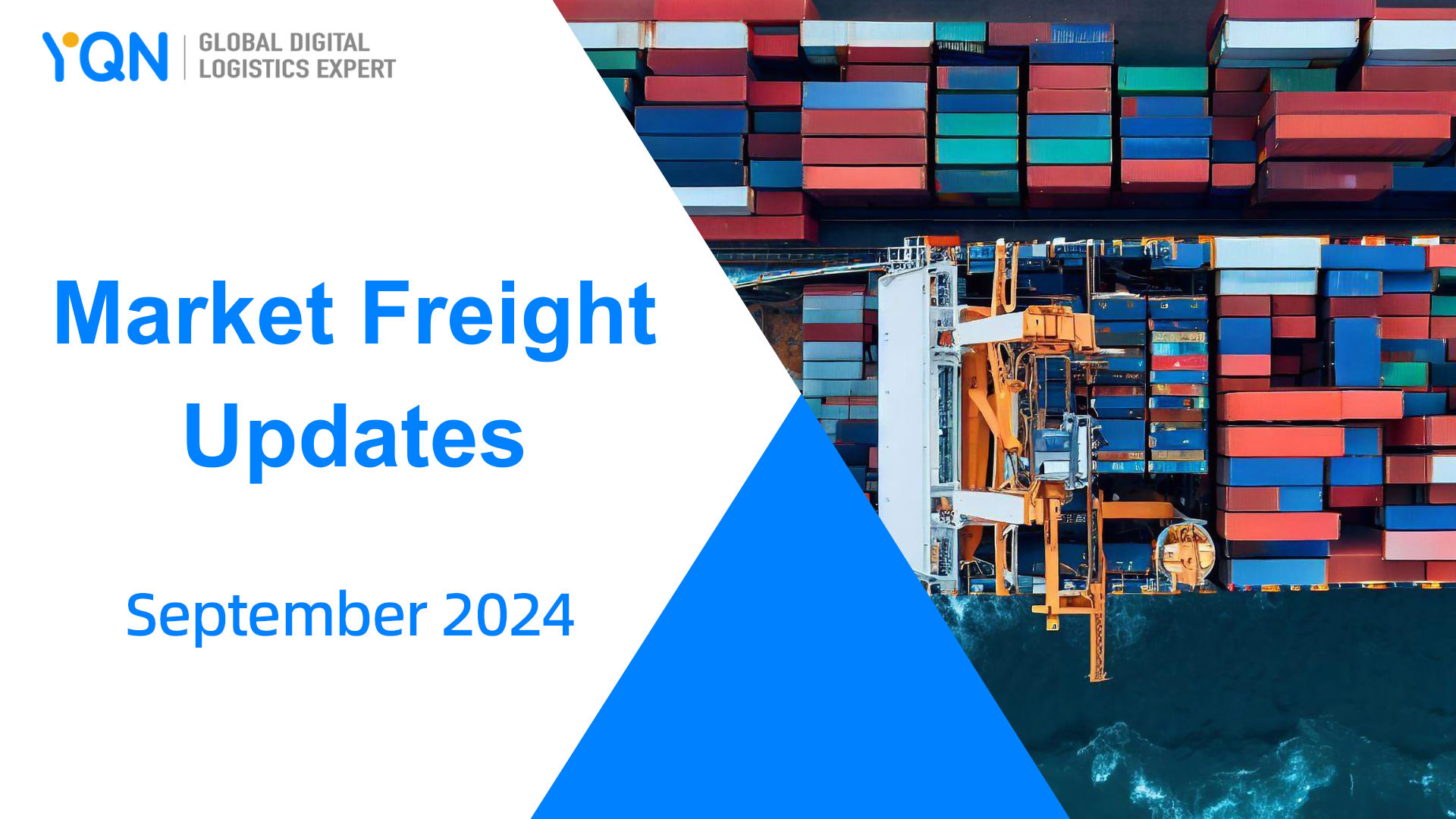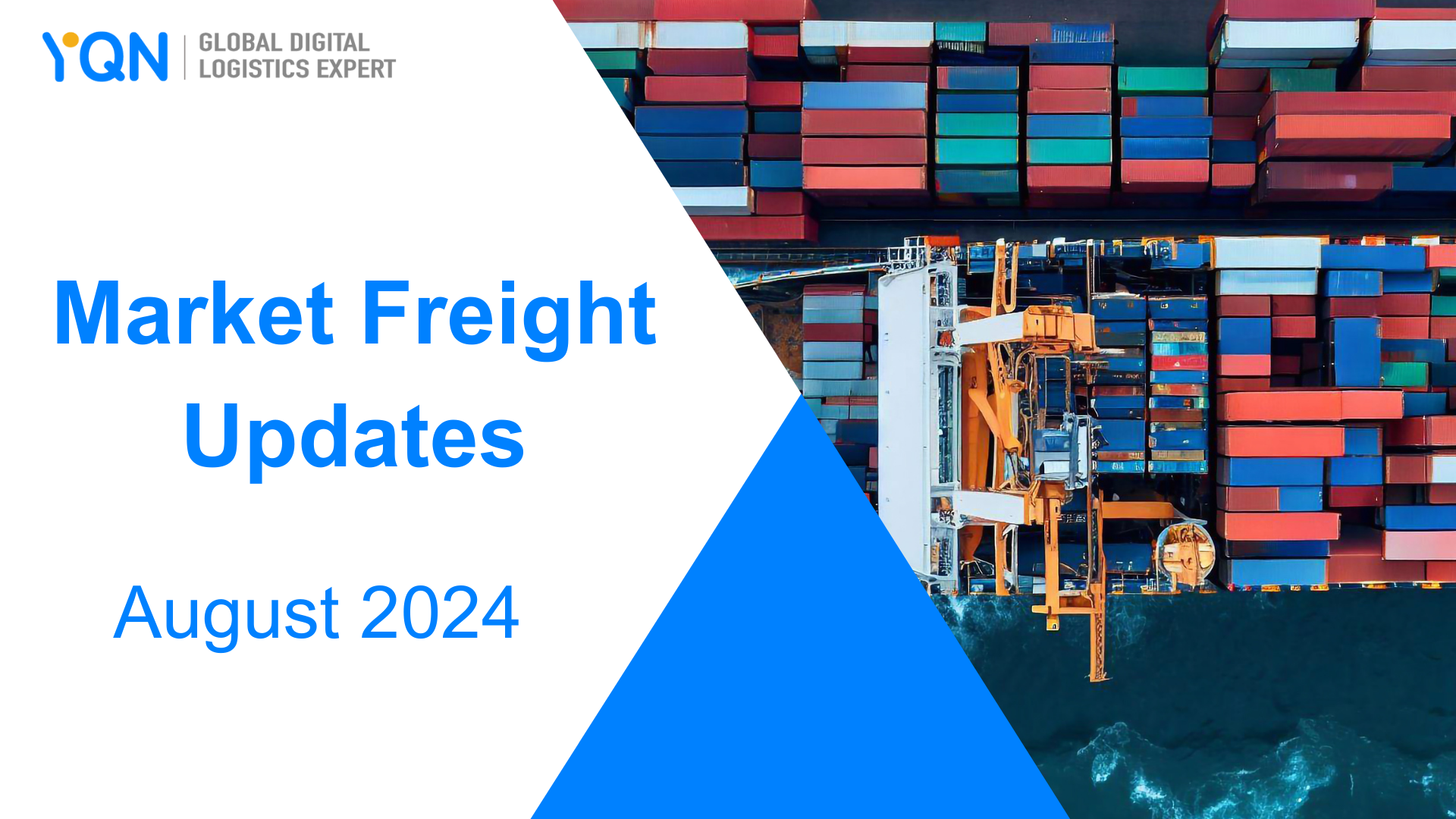September 2025 Freight News Roundup: Regional Restrictions, Rate Hikes, Red Sea Risks
YQN Operation Team | 2025.09.02 | info@yqn.com
Stay up to date with the latest logistics news for September 2025. This month, global shipping faces major developments: Turkey has restricted Israeli flights and ports, impacting Mediterranean trade, while Hapag-Lloyd and Maersk announce freight rate increases with peak season surcharges from Asia to South America and the Middle East. Meanwhile, the Red Sea remains a high-risk area as Houthis target commercial shipping, underscoring ongoing challenges for global logistics and supply chain operations.
1. Turkey Closes Airspace and Ports to Israel
On August 29, 2025, Turkey announced the closure of its airspace to Israeli government aircraft and banned Israeli ships from its ports. This move is a response to Turkey's condemnation of Israel's actions in Gaza. Turkish Foreign Minister Hakan Fidan stated that Turkey has fully severed economic and trade ties with Israel .
In the immediate aftermath, Israeli shipping company ZIM reported that one of its vessels was denied entry to Istanbul. As a result, ZIM has adjusted its Mediterranean network, rerouting services to alternative ports in Greece and Cyprus. This shift is expected to increase costs and transit times, while also diverting regional traffic away from Turkish hubs .
Why This Matters for Logistics & Global Trade
The disruption of Turkish ports and airspace affects not only Israeli carriers but also regional and global supply chains. Companies relying on Turkish transit points may face delays and increased costs. Additionally, the rerouting of services could lead to congestion at alternative hubs, further straining logistics networks. This geopolitical development underscores the vulnerability of global trade to political tensions and the importance of diversifying supply chain routes.
2. Shipping Giants Announce Rate Increases
Two major shipping companies, Hapag-Lloyd and Maersk, announced significant rate hikes.
Starting September 1, 2025, Hapag-Lloyd will implement a General Rate Increase (GRI) on all containers shipped from Far East base ports (including China, South Korea, Singapore, Japan, Vietnam, and others) to the East Coast of South America (Brazil, Argentina, Uruguay, Paraguay). This adjustment raises rates uniformly by USD 500 per container, with the cost for a 20-foot dry container increasing from USD 2,500 to USD 3,000, a 40-foot dry from USD 2,700 to USD 3,200, and a 40-foot non-operational reefer from USD 2,100 to USD 2,600. The new rates apply to all containers gated in full onward from that date and will remain in effect until further notice.
Maersk has revealed that it will apply a Peak Season Surcharge (PSS) of USD 700 per container, regardless of size (20- or 40-foot), for cargo moving from a broad range of Asia Pacific origins—including Brunei, China, Hong Kong, Vietnam, Indonesia, Japan, Cambodia, Laos, Myanmar, Malaysia, the Philippines, Singapore, Thailand, Timor-Leste, and South Korea—to destinations across the Middle East (UAE, Bahrain, Iraq, Jordan, Kuwait, Oman, Qatar, and Saudi Arabia), with the surcharge taking effect on September 10, 2025.
Why This Matters for Logistics & Global Trade
These rate increases reflect the shipping industry's response to rising operational costs, including fuel prices and port fees. For businesses, this means higher transportation expenses, which could lead to increased prices for consumers. Companies may need to reassess their logistics strategies, negotiate better terms with carriers, or explore alternative shipping routes to mitigate the impact of these surcharges.
3. Houthi Attack on Oil Tanker in the Red Sea
On September 1, 2025, the Houthis, a Yemeni militant group, targeted the oil tanker Scarlet Ray, alleging Israeli affiliations. The attack occurred near Saudi Arabia's Red Sea port city of Yanbu. Although the tanker was unharmed and all crew members were safe, the incident highlights the ongoing security risks in the region .
Why This Matters for Logistics & Global Trade
The Red Sea is a critical maritime corridor for global oil shipments. Continued instability and attacks in this region can disrupt oil flows, leading to price volatility and potential supply shortages. People working in global logistics may need to implement additional security measures and consider rerouting vessels to avoid high-risk areas, which could increase operational costs and transit times.
Conclusion
The developments in Turkey's trade policies, shipping rate adjustments, and security concerns in the Red Sea illustrate the complex interplay between geopolitics and global trade. Businesses engaged in international logistics must remain agile, continuously monitor geopolitical developments, and adapt their strategies to navigate the evolving landscape of global commerce.
Stay ahead of the curve by following us on WhatsApp Channel or contacting our logistics experts at info@yqn.com for tailored support.










